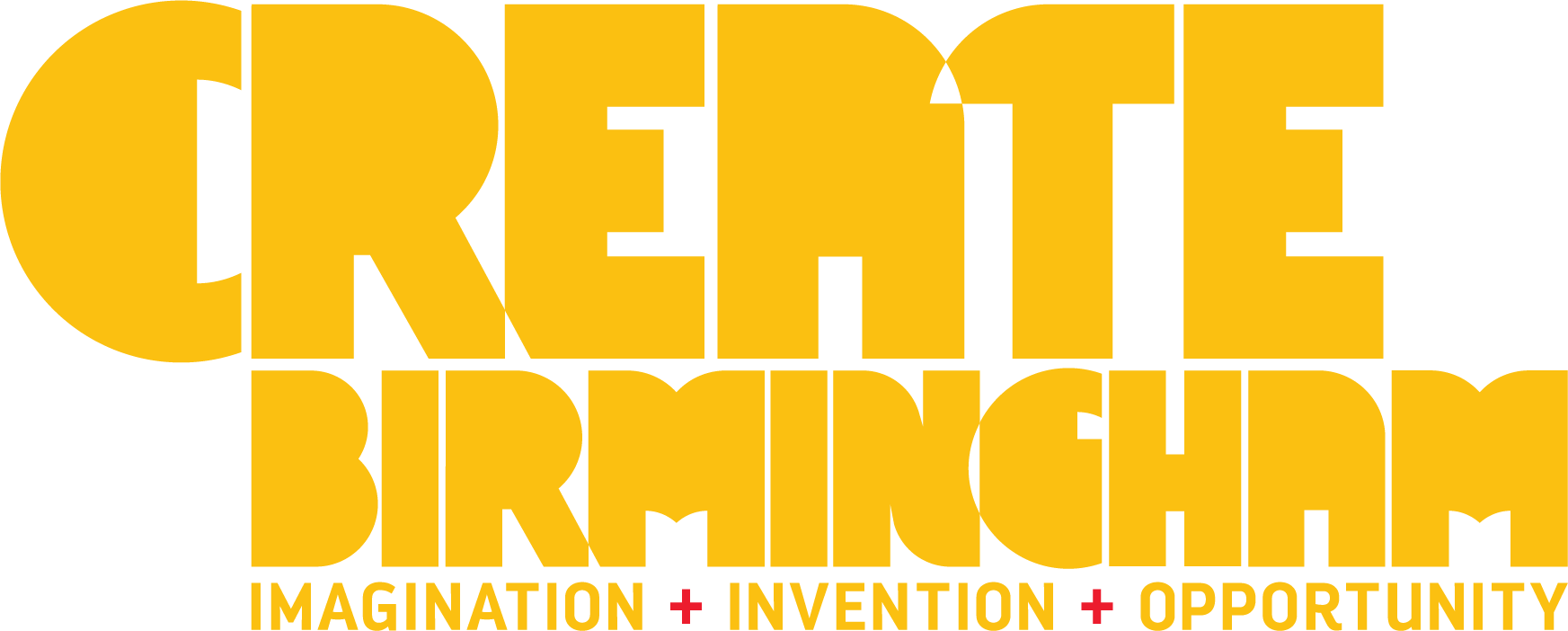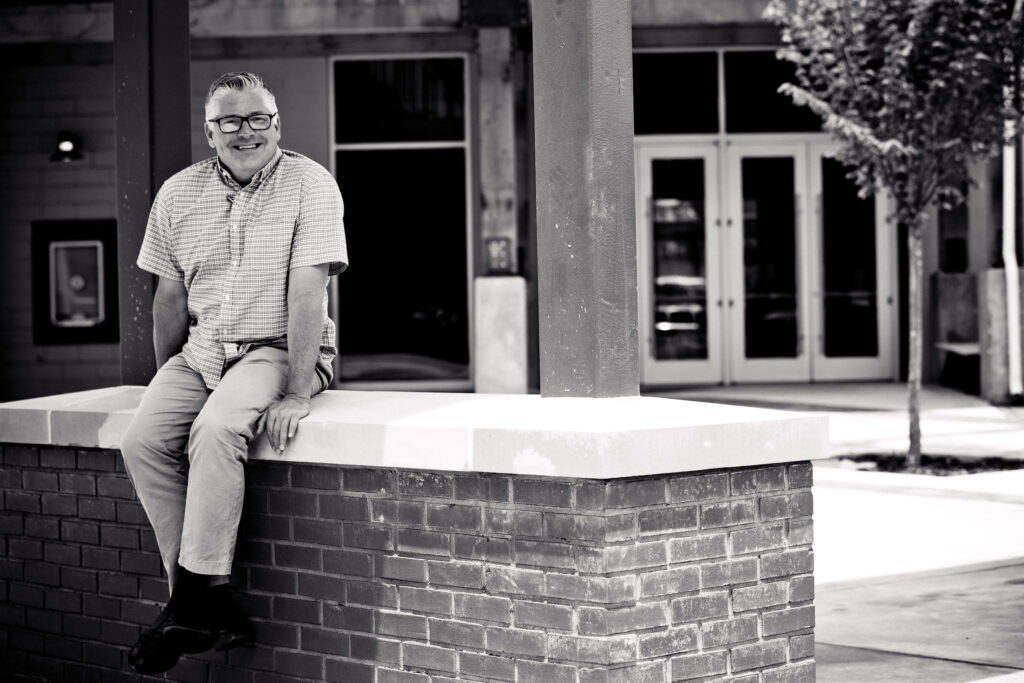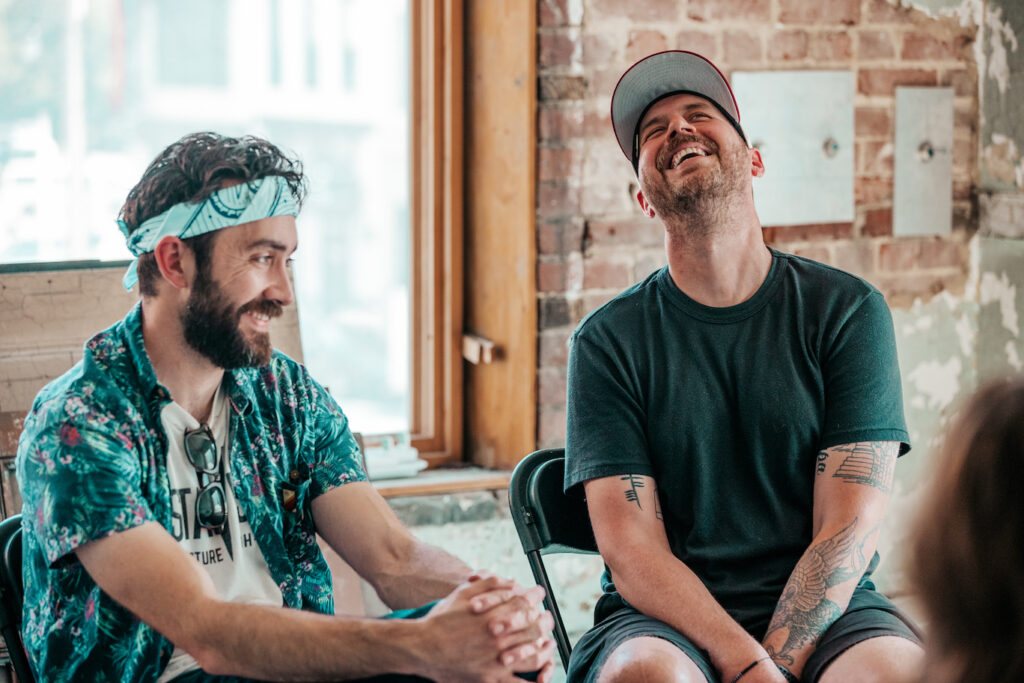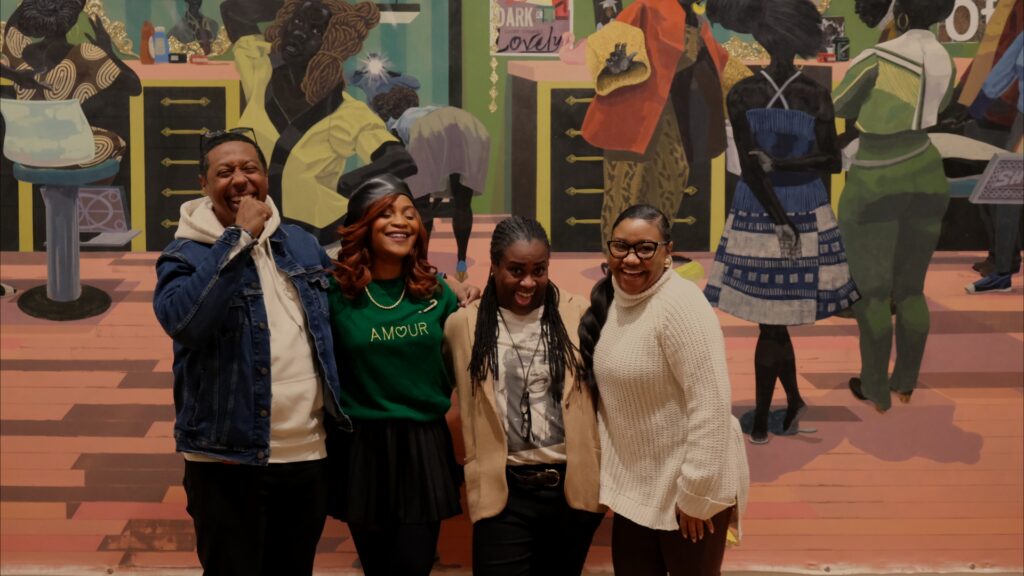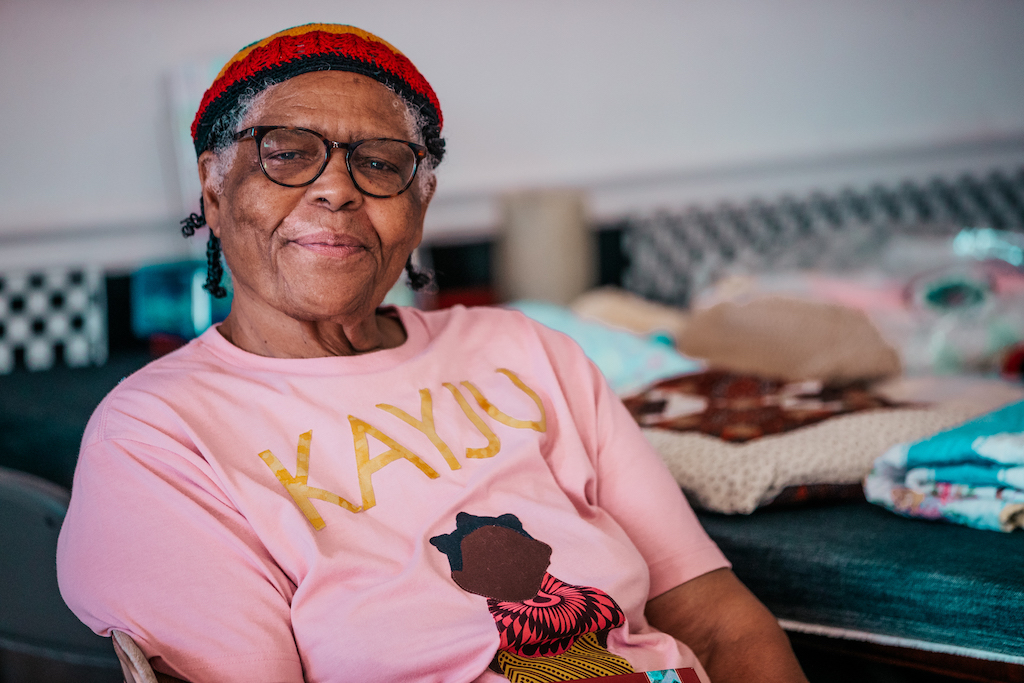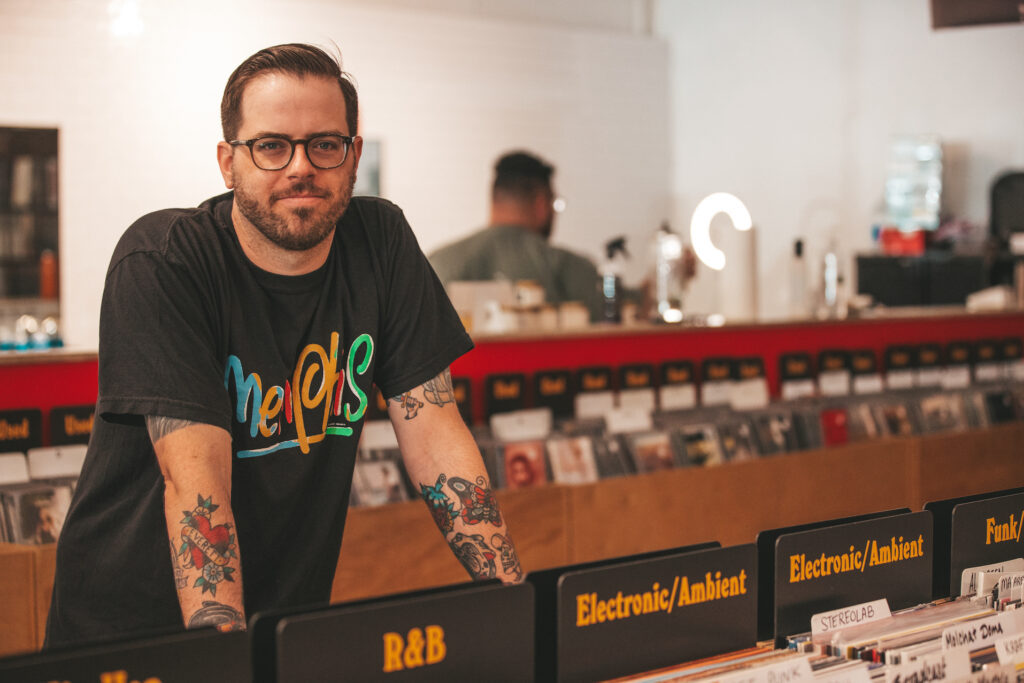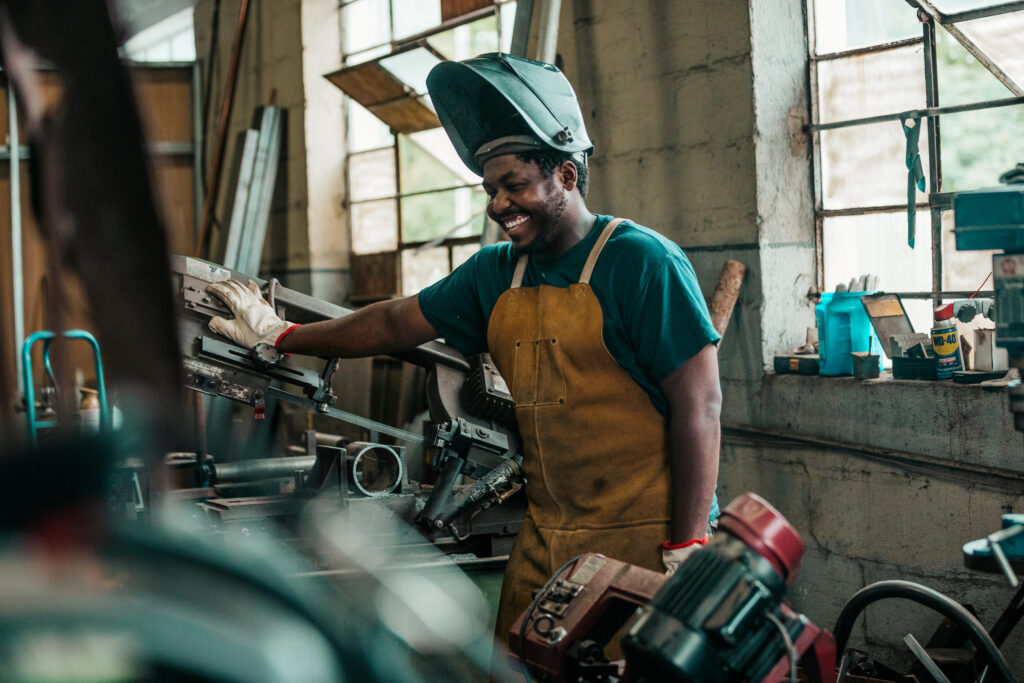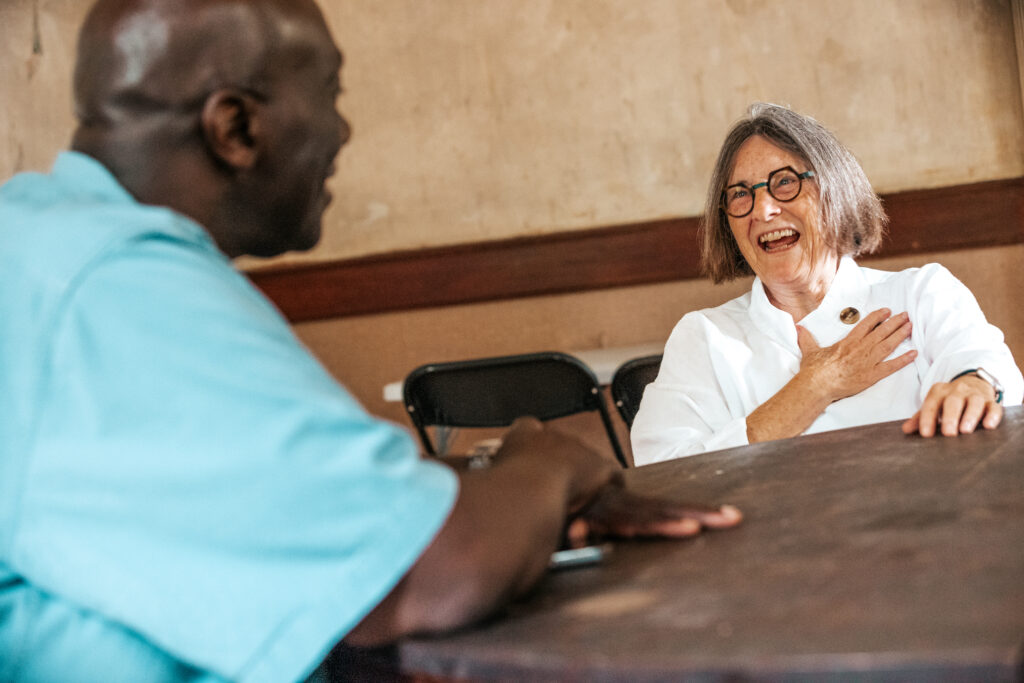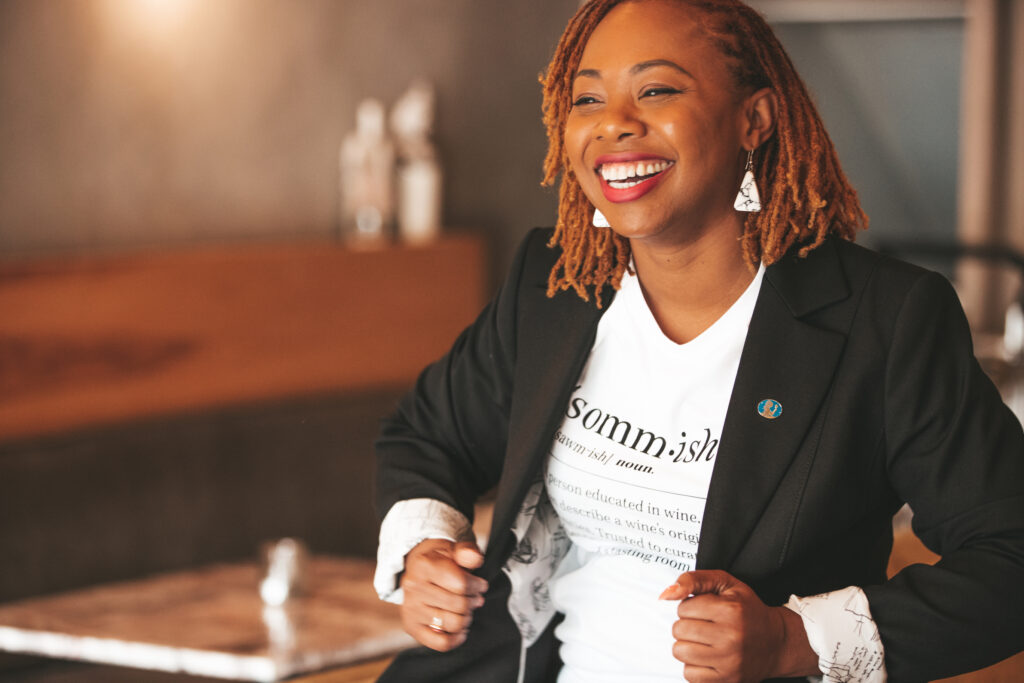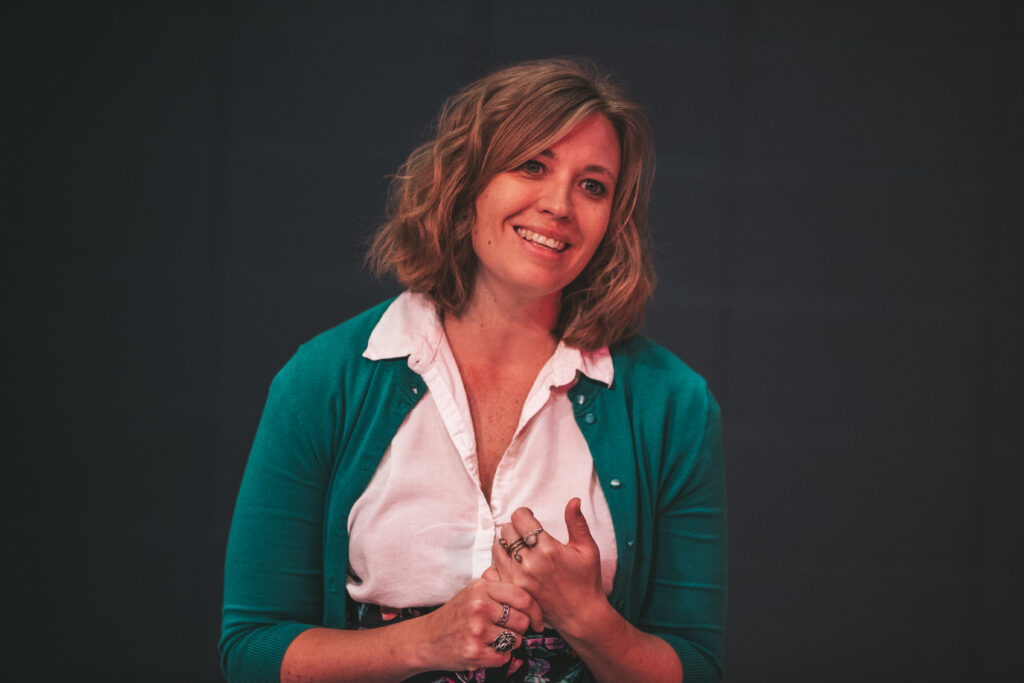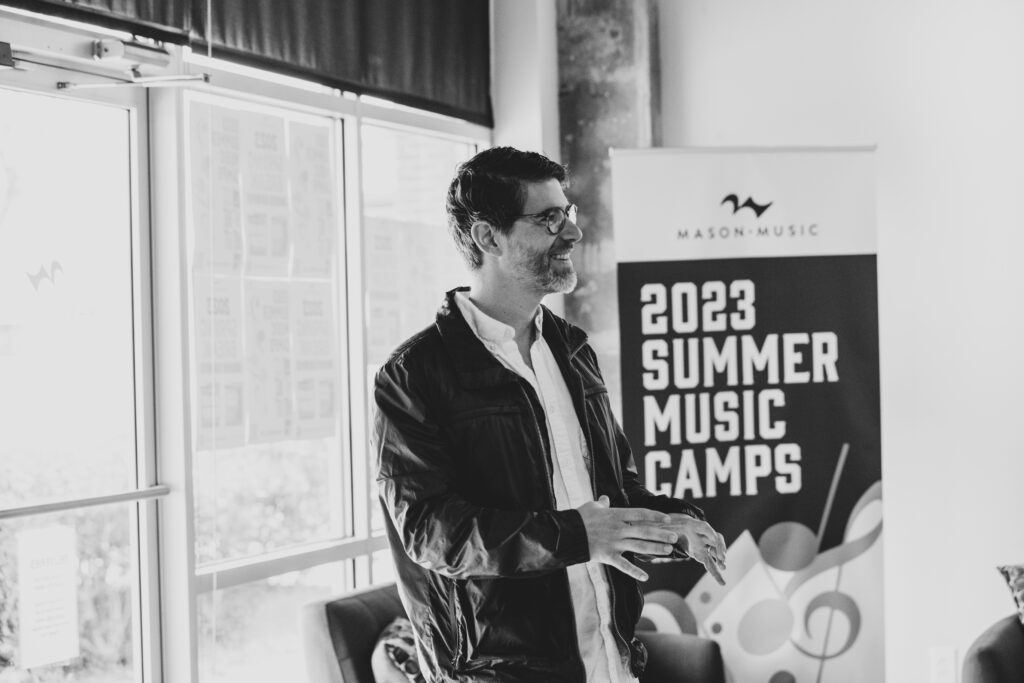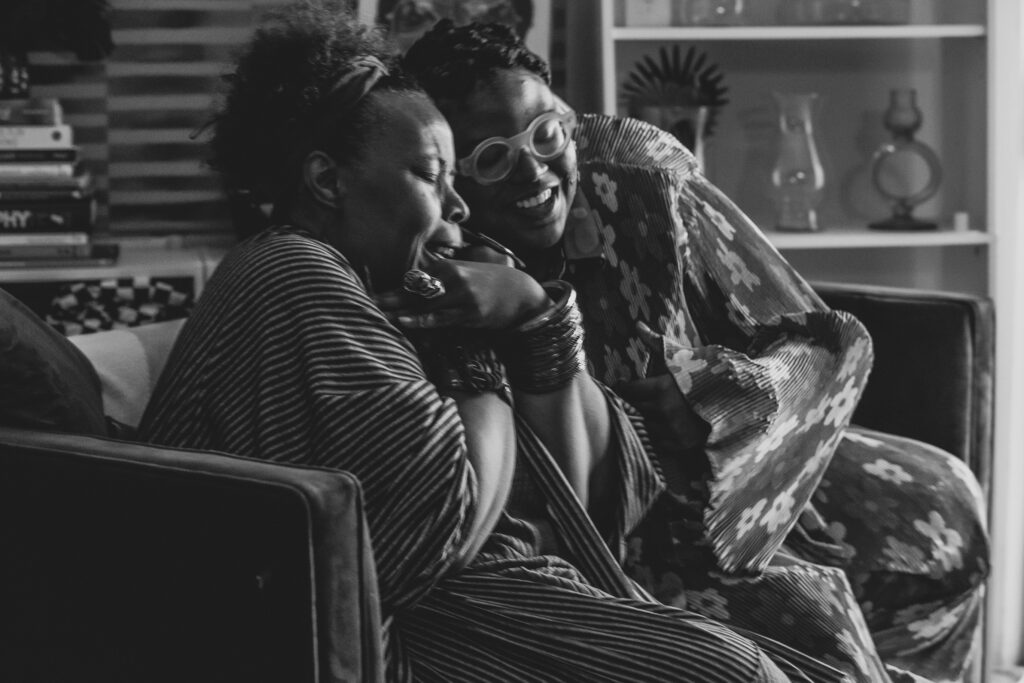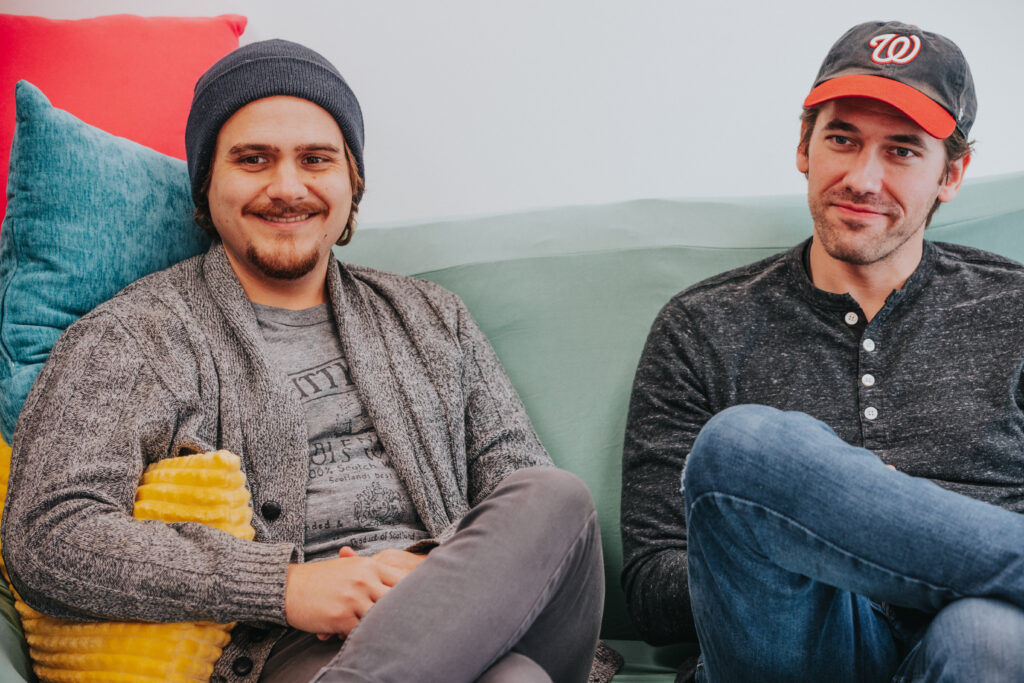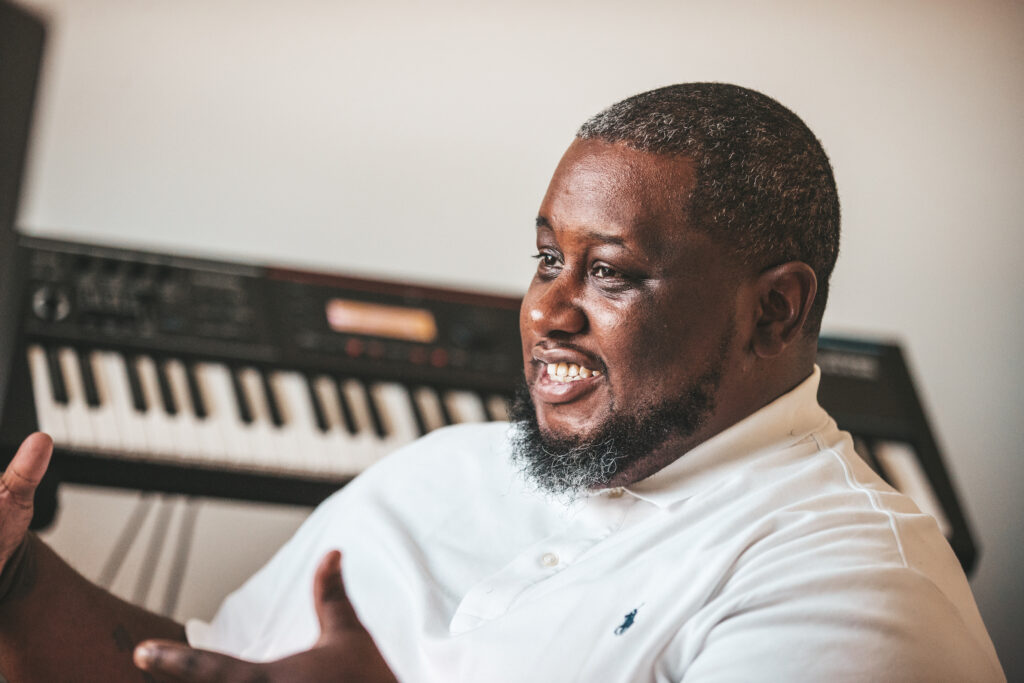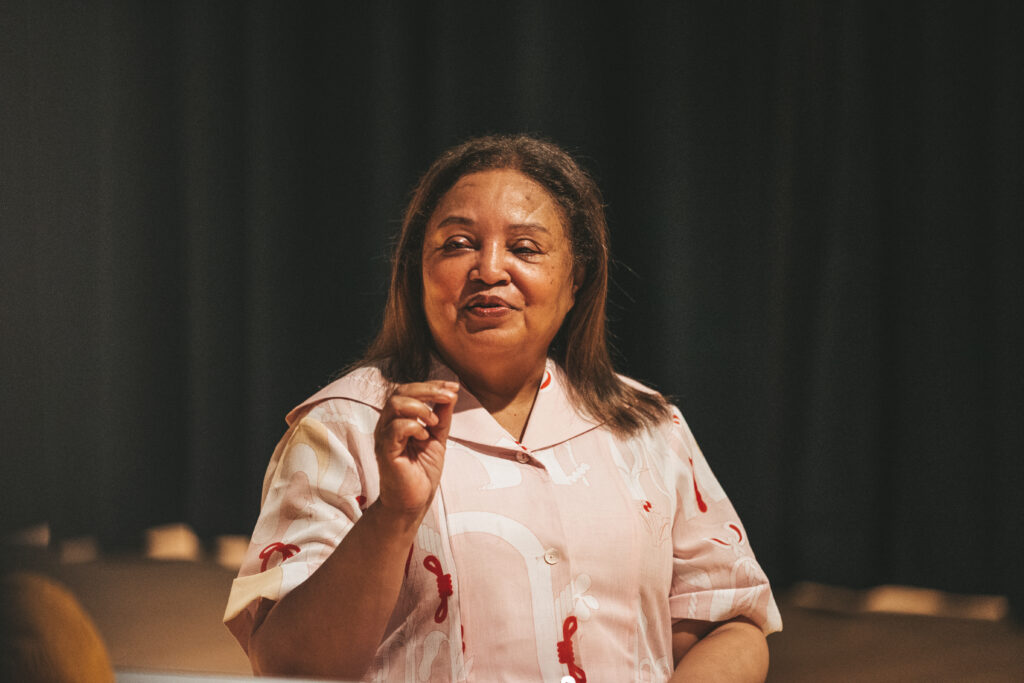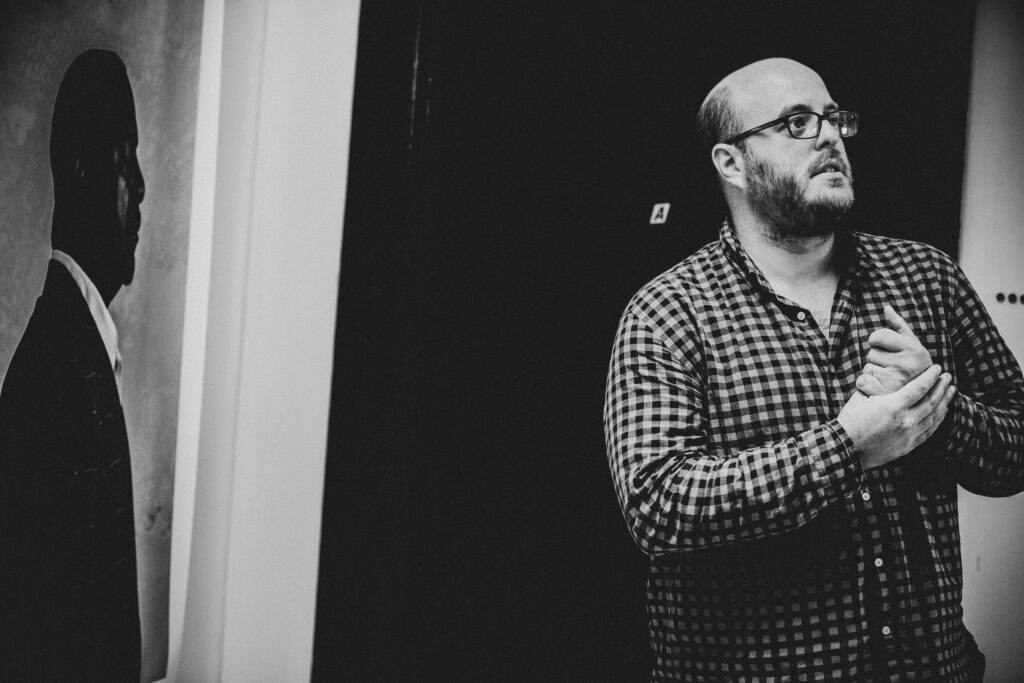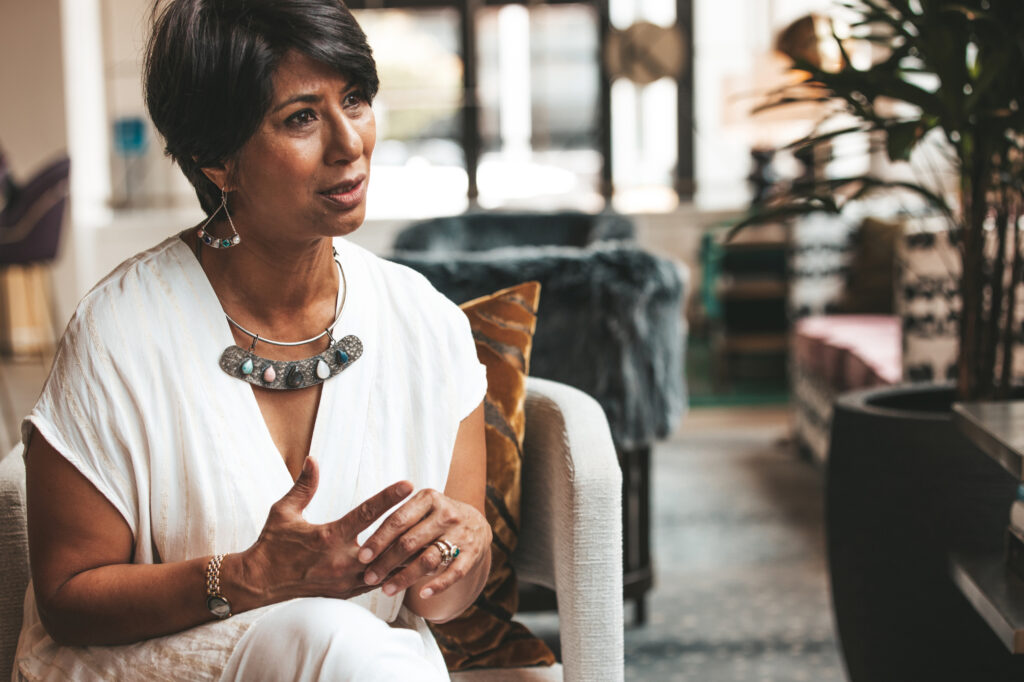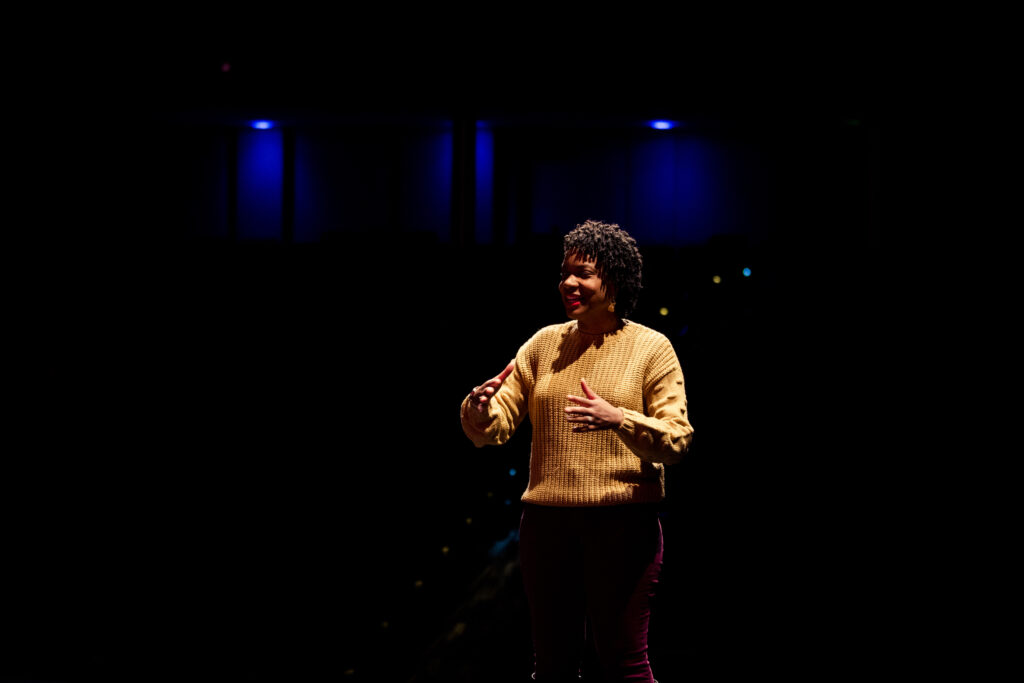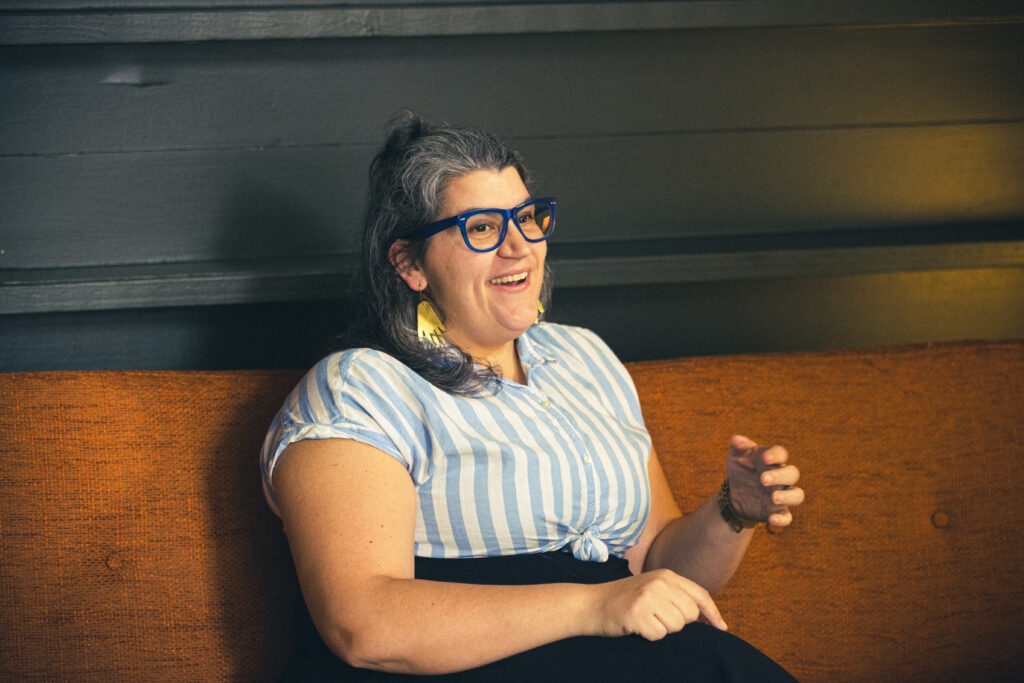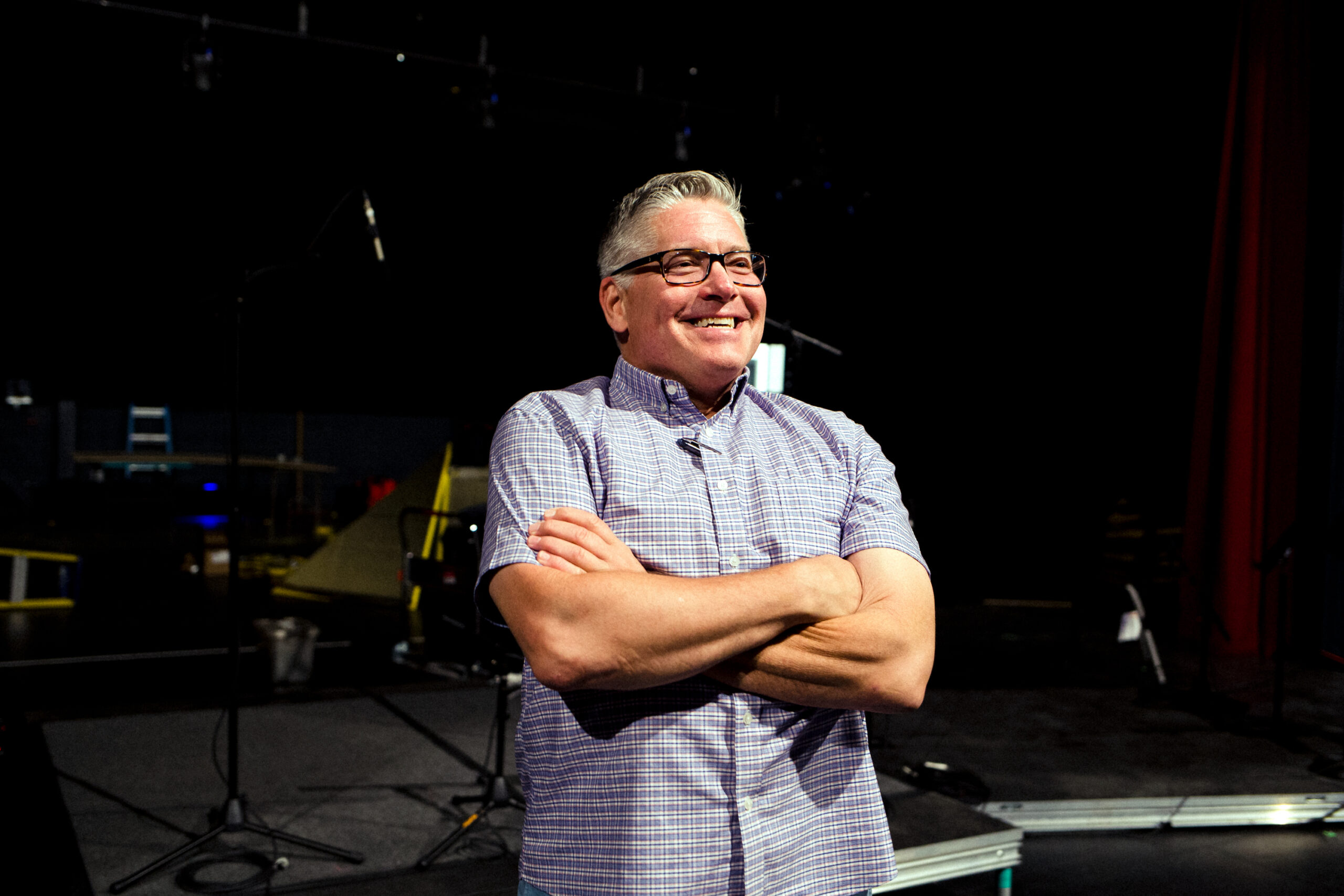 You first came to Birmingham from New York in 2002 to direct a production of Grease for what was then Summerfest Musical Theatre, and in 2021 you are still here. What prompted you to make that temporary gig a permanent move?
You first came to Birmingham from New York in 2002 to direct a production of Grease for what was then Summerfest Musical Theatre, and in 2021 you are still here. What prompted you to make that temporary gig a permanent move?
Birmingham, as a city, is one of the most incredible opportunities if you want to transplant yourself and if your goal is to be a catalyst for change – even if you don’t know what you want to grow. I was planning to open a bed and breakfast, and I had never run my own business other than being an actor and a director. I thought I would take advantage of a chance to run a nonprofit for a few years and then go open the bed and breakfast, but I fell in love with the company and with Birmingham. And the potential kept revealing itself to me. As we started to grow and expand our roots and our base, our opportunity to really turn this organization into a regional center for the arts became more evident.
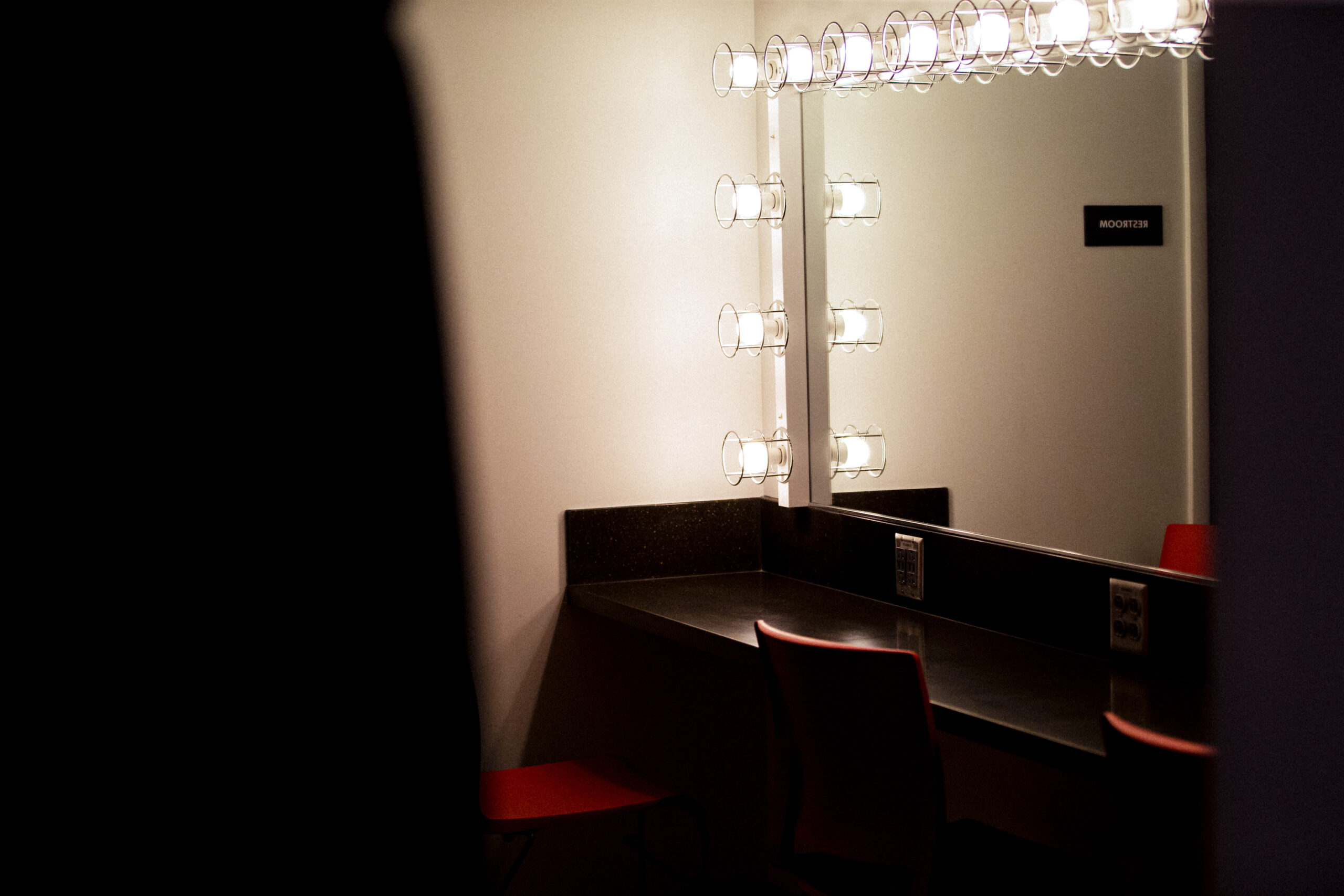 The organization has grown exponentially since your tenure as Executive Director began in 2003. Can you give us a sense of where Red Mountain Theatre was then and where it is now?
The organization has grown exponentially since your tenure as Executive Director began in 2003. Can you give us a sense of where Red Mountain Theatre was then and where it is now?
When the company’s founder, James Hatcher, started Summerfest, we were part of UAB and at Town & Gown Theatre, which is now the Virginia Samford Theatre, and at Boutwell Auditorium. When Hatcher, as he was known, passed away, it was one of those situations, as with any kind of dynamic leadership, where the organization struggled to find its way. It was almost bankrupt when I came and sat down at the desk, not knowing what the heck I was supposed to do. We were a little south of a $500,000 annual budget, although we didn’t even have an official budget, no audited financial statements, nothing. We started from there with the incredible Sharon Suellentrop, who was my one half-time employee. Now we’re approaching a $5 million annual budget with a staff that will soon grow to 30, and we just opened a $25 million arts campus. So, there’s certainly been a little bit of growth!
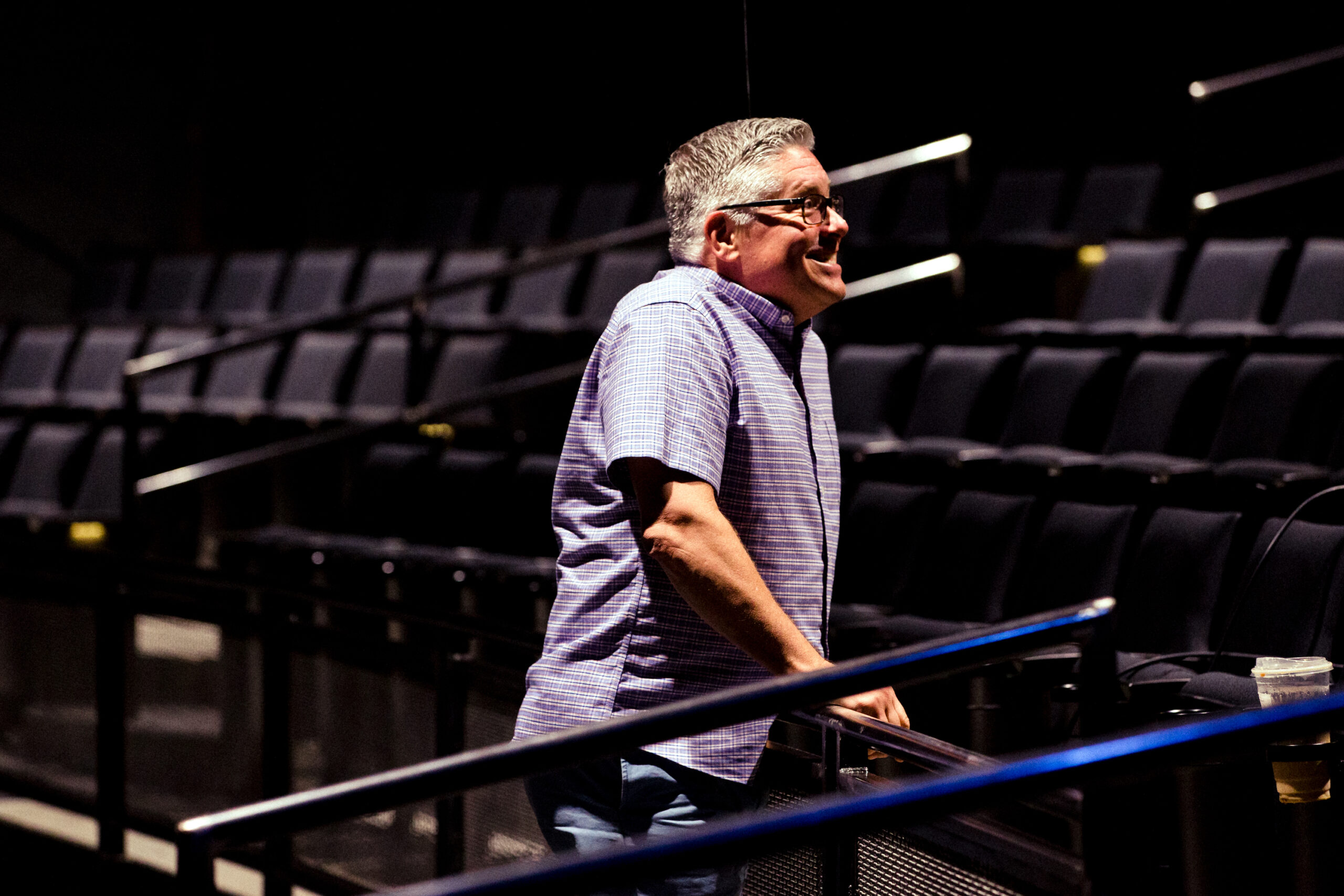 Audiences certainly know Red Mountain Theatre for its big blockbuster musicals, but you stage a variety of productions, including new work. RMT has not only a strong local track record but also a national reputation, with Broadway producing credits on shows such as The Bridges of Madison County and Once on This Island. How did that come about?
Audiences certainly know Red Mountain Theatre for its big blockbuster musicals, but you stage a variety of productions, including new work. RMT has not only a strong local track record but also a national reputation, with Broadway producing credits on shows such as The Bridges of Madison County and Once on This Island. How did that come about?
I think one of the blessings of my early time here was that I was aware of the National Alliance for Musical Theatre. Being a member of that organization and going to their conferences gave me this community of like-minded arts leaders from across the nation. They really introduced me to the producer side of the world. As an actor and a director, I’d had the privilege of being a part of new work, but I hadn’t realized that in Birmingham, we could have an opportunity to support new work. The more I became engaged with NAMT, the more I really began to rely on a lot of those arts leaders.
I then said, “it’s my turn to give back,” and I began to participate in various ways, such as speaking on panels and serving on the New Works Committee, which selects the new musicals to be presented at NAMT’s annual Festival of New Musicals in New York City. Then I joined the board, and the relationships that we had with folks in New York began to take a different turn in terms of our ability to participate in producing on Broadway. Once we began to put our toe in that new world, the national lens completely shifted to “Holy smokes – what’s going on in Birmingham, Alabama? Who’s this Red Mountain Theatre?”
And now we’ve spent 18 years encouraging people to please just come see this new show and take a chance. And frankly, to understand that sometimes it isn’t good and that’s art, that’s theater – it’s a living, breathing human thing. And it’s about learning when you come to be discerning and to think “I wonder why this one didn’t land.” It doesn’t mean don’t ever go back to that theater again.
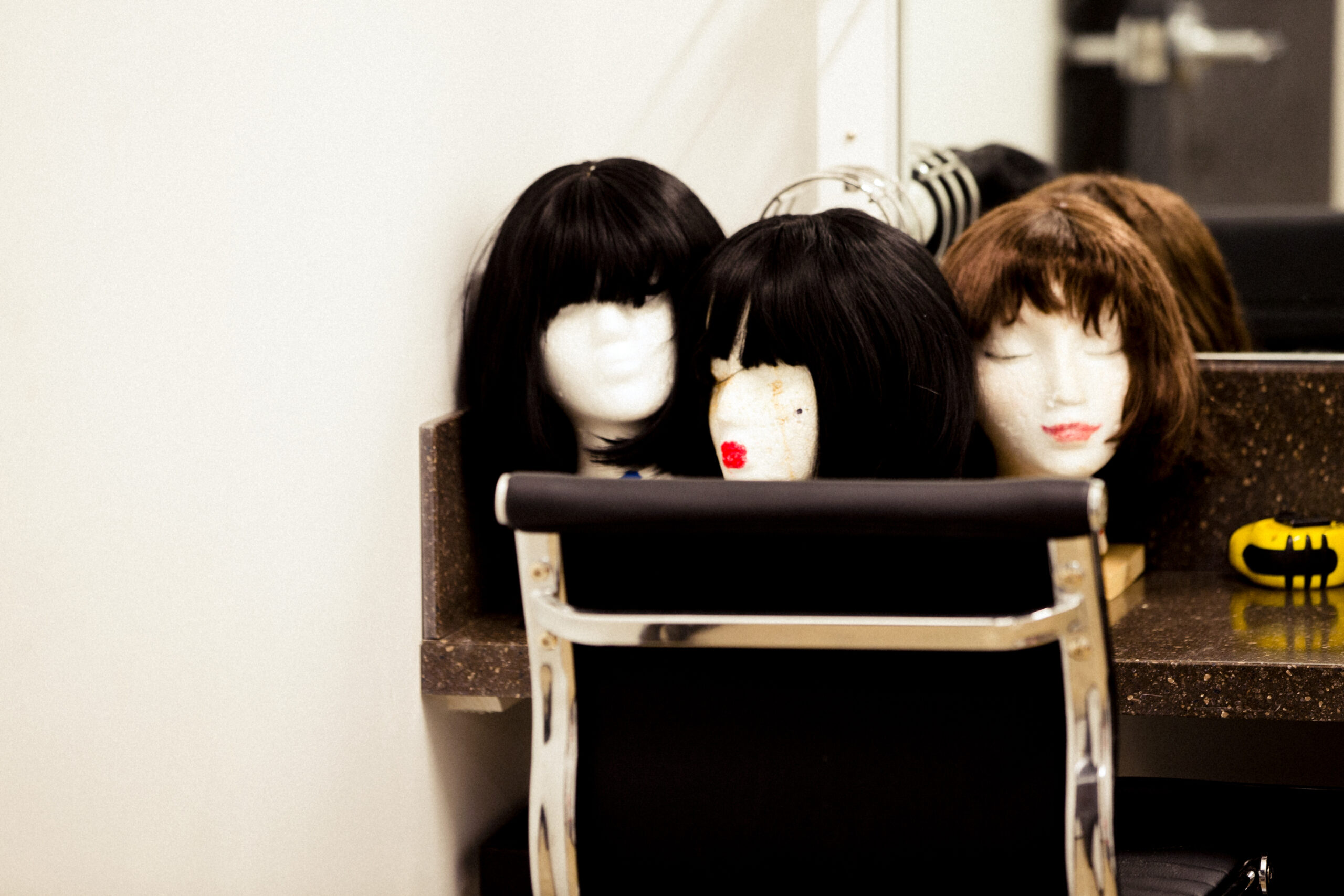
A new home with room under one roof for all the elements of Red Mountain Theatre’s work has been a dream for many years, and this summer that dream has finally been realized. What was that journey like, and what does the new campus mean for the organization?
There were so many disappointments on the road to this new Arts Campus, so many things that we thought were the answer that were not the answer. There were difficult decisions when I had to say, “We have to walk away from this. This is not what we should be doing.” But I can tell you that when I walked into this building, I threw my arms open and said, “This is it.” It’s like I had to finally cultivate patience, which is not my strong suit. To think that over a hundred years ago, when this building began to be built and then was added onto over the years – it’s as if there was some divine plan that this was exactly where we were supposed to be.
It’s hard to understand the magnitude of the venue until you visit. One of our theater design team members is Michael Ferguson of TheatreDNA, who has worked across the nation with huge theatrical operations like the Dallas Center for the Performing Arts and the Kodak Theatre in LA. He remarked that there is a unique synergy created in an artistic organization when the departments can interface on a regular basis. It’s the talking in the break room, walking by in the hallway, just having side chats with the set designers, the artists, the bartender, the costume designer, the education director. All this energy is just already bubbling up.
And again, there’s the crazy divinity of the timing of us coming out of this worldwide pandemic, this unprecedented crisis, at a time when we can be cohesively together on one campus and focus all our collective energies towards our success. The deeper impact of that on our programming is just an unreal gift.
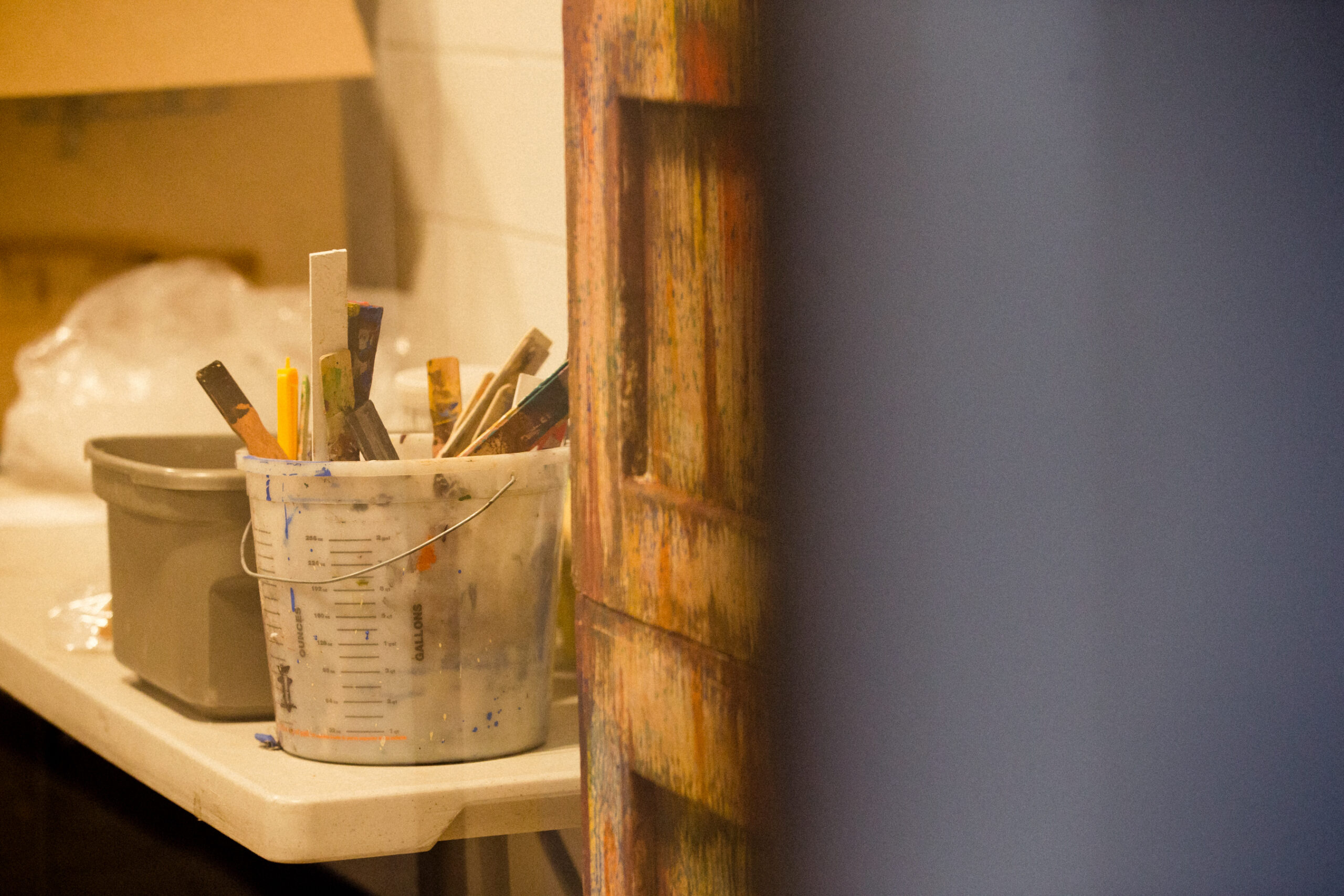 And that energy no doubt extends to your work with young people, with the campus also serving as a location for everything from short-term classes and camps to a year-round intensive Conservatory program. How does the education component play in?
And that energy no doubt extends to your work with young people, with the campus also serving as a location for everything from short-term classes and camps to a year-round intensive Conservatory program. How does the education component play in?
We don’t want to get exhausted trying to be everything for everybody, but we really do want to be an entry point for any level of interest or ability. We try to meet kids where they are, and then also provide an opportunity that sets a high bar. We see kids between the ages of four and 18. We see 16,000 kids a year with our outreach, and the really beautiful statistic is that those are kids from 72 unique zip codes. So, when you talk about a broad spectrum of youth involvement here, it’s fantastically diverse.
Then when you move up to the level of our Conservatory program, these are kids that are deciding that they just love musical theater passionately and want to engage, whether it’s for the camaraderie or the success in the moment, or because they want to go into a career in the theater. It’s intense, it’s a lot of hours, it’s what we call the pre-Olympic level. The cool part about the campus is that we’ll be able to grow the opportunities for kids that have an interest in the production side of this world, like audio engineering. We have a recording studio now where they can do voiceover work. Those are the important aspects we want to press into next.
One of the beautiful early moments being on campus together was rehearsing with the Conservatory kids all day on a Saturday and then watching them exiting while walking past audience members coming into the theater. Thanks to the design of the campus, they also walk by the costume room where there is sewing or fitting going on and by the scenic shops where there is construction or painting going on. There’s this ability to look into almost a snow globe scene of what we do here. I just love that.
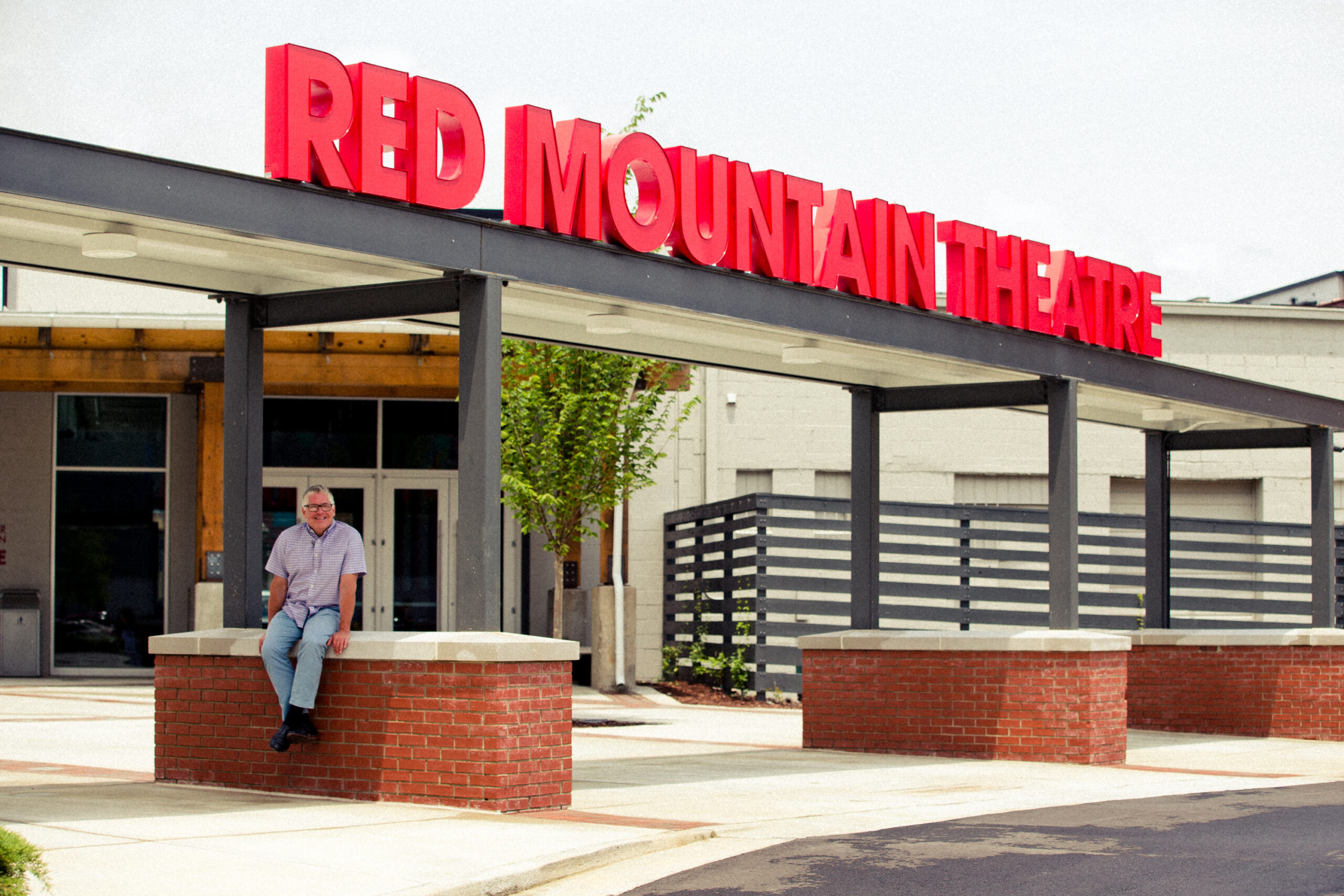 As you get ready to launch your first season in the new space, and as we start to gather as a community post-pandemic, is there anything coming up at RMT that you’d like to highlight?
As you get ready to launch your first season in the new space, and as we start to gather as a community post-pandemic, is there anything coming up at RMT that you’d like to highlight?
Our new season officially begins in September, but every Thursday, Friday, and Saturday in July, we are offering something that I think Birmingham has never seen before. It’s a completely immersive theatrical experience, which is something that has been done in New York and other places for a long time. Because we have to plan so far ahead and because we couldn’t know what would be going on with COVID, we came up with an opportunity for a cool experience, within this beautiful new venue, where we could have smaller groups travel through a Roaring Twenties speakeasy storyline.
We have also moved our annual Human Rights New Works Festival to September, and that is something that I would really like to ask the community to take a risk on. It’s a low price point, and it’s a very interesting thing to be at the birth of a new piece of theater. Some of the shows that have been done here have gone on to great success, and I think will continue to do so. You can see something that’s unique and different, check out the Arts Campus, and enjoy a drink at the piano bar afterwards.
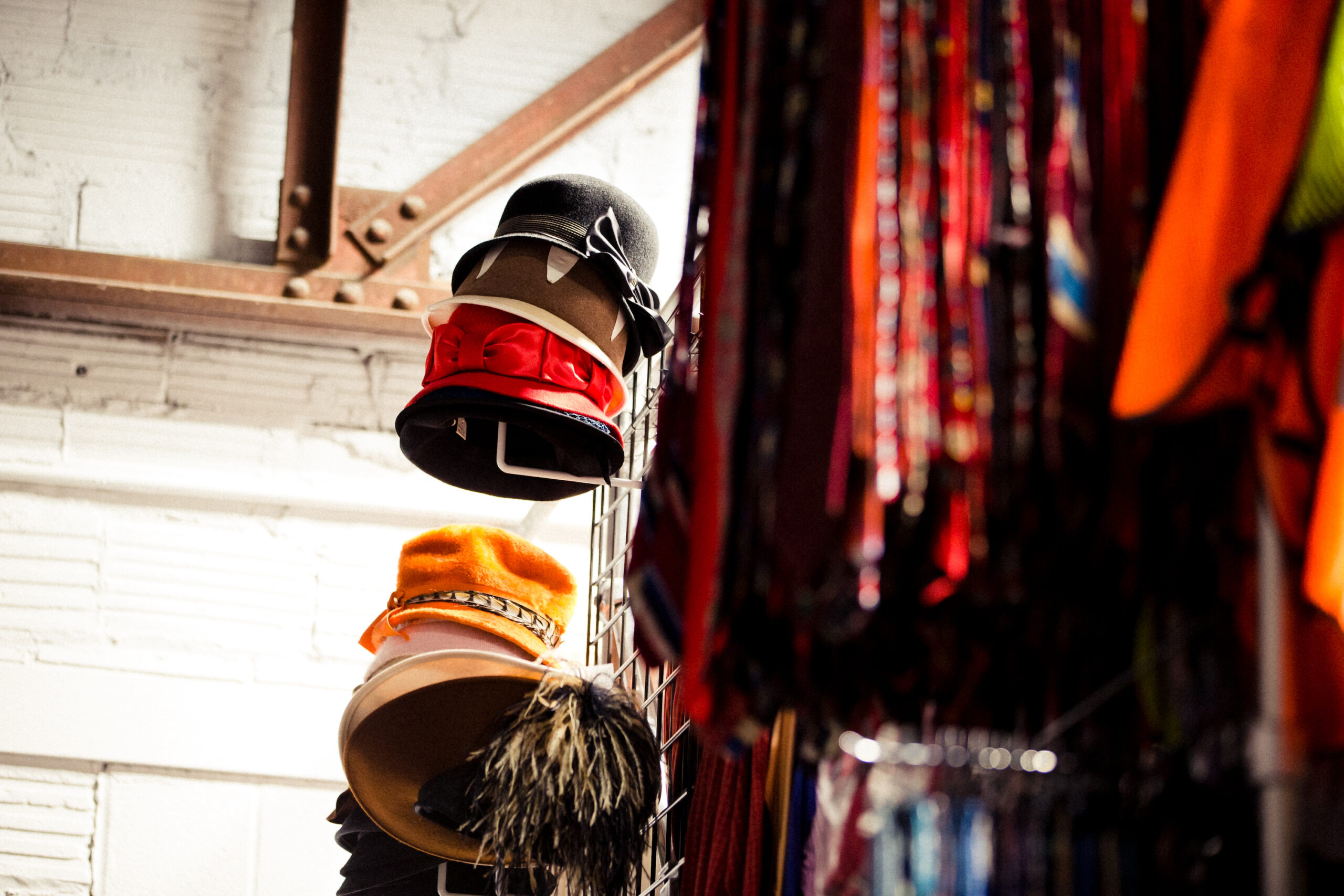 Is there anything that really stands out to you as unique about Birmingham’s theater community? Are there any areas where you hope to see more growth?
Is there anything that really stands out to you as unique about Birmingham’s theater community? Are there any areas where you hope to see more growth?
We budget 14 to 16 months out, and I have to create those budgets considering what actors we’ll have. Are we going to be able to cast the show locally or do I also need to budget for some out-of-town talent? And I can’t tell you the number of times that our artistic community here has just wowed me – when we have had a hundred people show up at an audition and I’m sitting there in front of an embarrassment of riches thinking, “Oh my gosh, I can cast this whole show here.” That is the constant surprise and beauty of this community. Where there is room for growth, and I put this on us, is that we need to do a better job of finding all those artists that are the other side of production – the director, the music director, the scenic design, the set design. I think that they are here, and I just want us to do a better job of putting out that clarion call that we are looking for those people also.
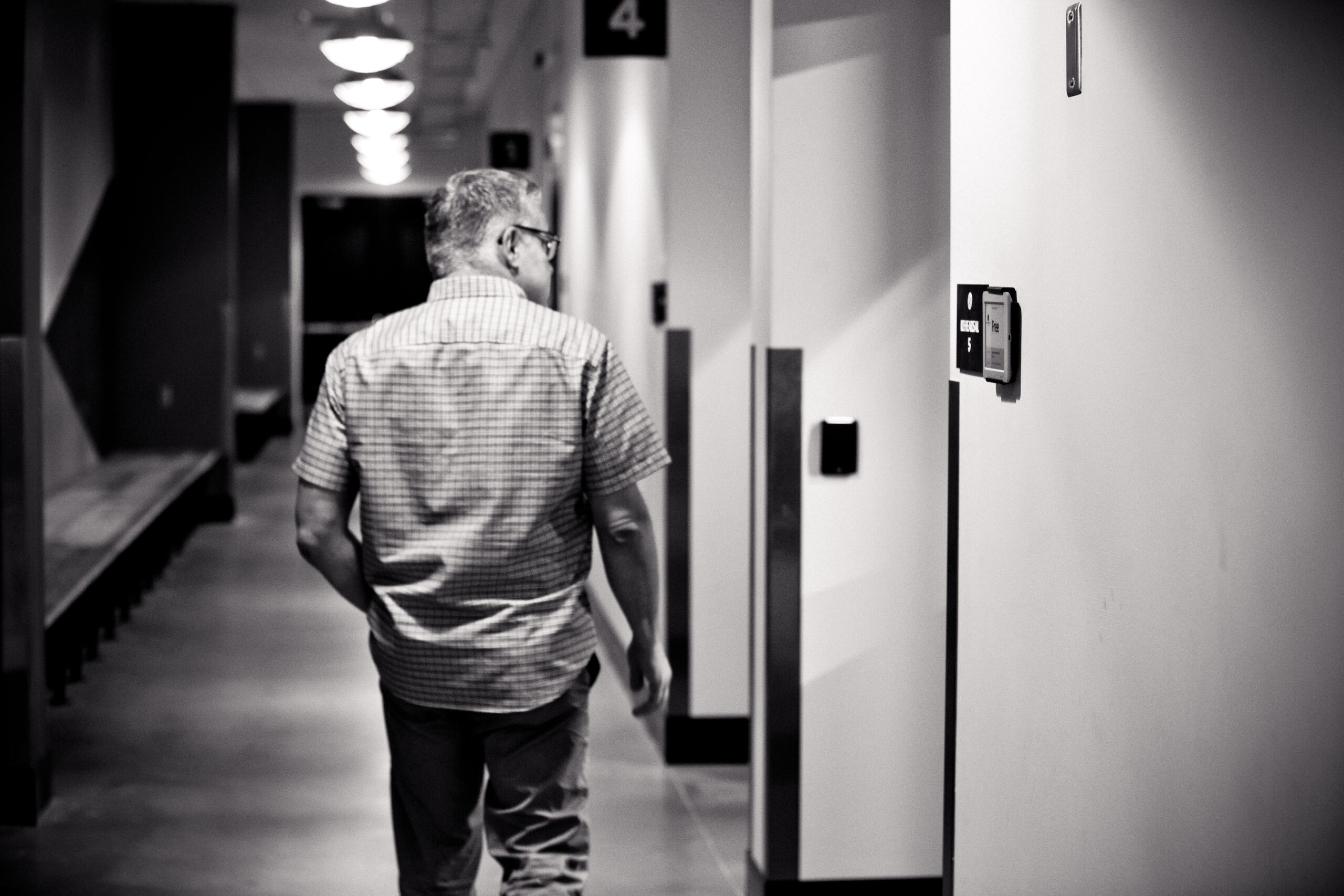 You and your team and all your supporters in the community have poured so much energy and effort into getting Red Mountain Theatre to this new place, both physically and organizationally. It’s been difficult and dusty and noisy and chaotic, but now you’re there and you can stand in the dark on the stage and just take it all in. What goes through your head in those quieter moments?
You and your team and all your supporters in the community have poured so much energy and effort into getting Red Mountain Theatre to this new place, both physically and organizationally. It’s been difficult and dusty and noisy and chaotic, but now you’re there and you can stand in the dark on the stage and just take it all in. What goes through your head in those quieter moments?
I think the thing I feel is literally released into infinite possibility. It’s daunting and beautiful. I mean, it’s like a child. I’ve dreamed of having this child, and now what an unbelievable responsibility I have. I walk it and get tears in my eyes all the time. You know we, the arts, are having an enormous economic impact on the success and vibrancy of this city. There are kids that I taught when they were 12 who are now full-time employees of this organization. We are literally creating jobs – and in a field where it’s so hard to find an artistic home. There’s nothing that could possibly make me feel prouder than to have done something of import on that front.
 You first came to Birmingham from New York in 2002 to direct a production of Grease for what was then Summerfest Musical Theatre, and in 2021 you are still here. What prompted you to make that temporary gig a permanent move?
You first came to Birmingham from New York in 2002 to direct a production of Grease for what was then Summerfest Musical Theatre, and in 2021 you are still here. What prompted you to make that temporary gig a permanent move? The organization has grown exponentially since your tenure as Executive Director began in 2003. Can you give us a sense of where Red Mountain Theatre was then and where it is now?
The organization has grown exponentially since your tenure as Executive Director began in 2003. Can you give us a sense of where Red Mountain Theatre was then and where it is now? Audiences certainly know Red Mountain Theatre for its big blockbuster musicals, but you stage a variety of productions, including new work. RMT has not only a strong local track record but also a national reputation, with Broadway producing credits on shows such as The Bridges of Madison County and Once on This Island. How did that come about?
Audiences certainly know Red Mountain Theatre for its big blockbuster musicals, but you stage a variety of productions, including new work. RMT has not only a strong local track record but also a national reputation, with Broadway producing credits on shows such as The Bridges of Madison County and Once on This Island. How did that come about? 
 And that energy no doubt extends to your work with young people, with the campus also serving as a location for everything from short-term classes and camps to a year-round intensive Conservatory program. How does the education component play in?
And that energy no doubt extends to your work with young people, with the campus also serving as a location for everything from short-term classes and camps to a year-round intensive Conservatory program. How does the education component play in? As you get ready to launch your first season in the new space, and as we start to gather as a community post-pandemic, is there anything coming up at RMT that you’d like to highlight?
As you get ready to launch your first season in the new space, and as we start to gather as a community post-pandemic, is there anything coming up at RMT that you’d like to highlight? Is there anything that really stands out to you as unique about Birmingham’s theater community? Are there any areas where you hope to see more growth?
Is there anything that really stands out to you as unique about Birmingham’s theater community? Are there any areas where you hope to see more growth? You and your team and all your supporters in the community have poured so much energy and effort into getting Red Mountain Theatre to this new place, both physically and organizationally. It’s been difficult and dusty and noisy and chaotic, but now you’re there and you can stand in the dark on the stage and just take it all in. What goes through your head in those quieter moments?
You and your team and all your supporters in the community have poured so much energy and effort into getting Red Mountain Theatre to this new place, both physically and organizationally. It’s been difficult and dusty and noisy and chaotic, but now you’re there and you can stand in the dark on the stage and just take it all in. What goes through your head in those quieter moments?